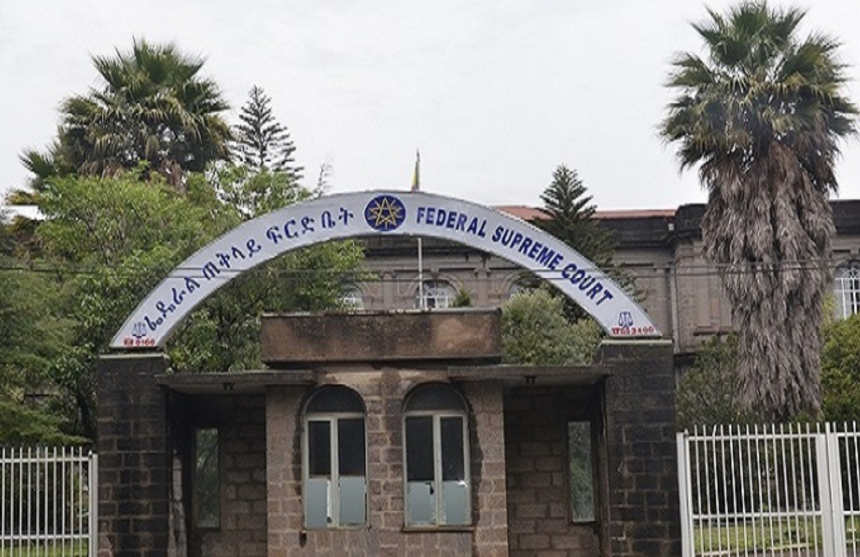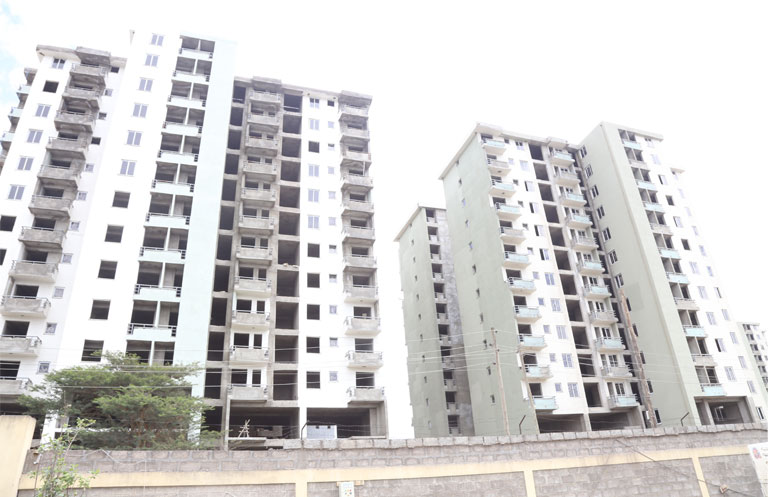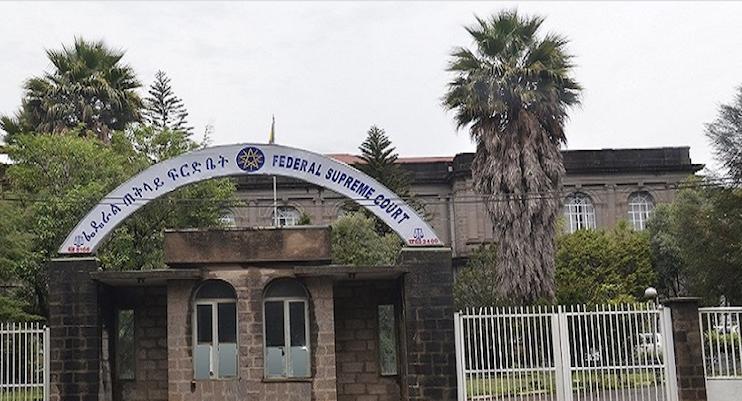
Apr 17 , 2020
 The draft came into the picture with the main aim of establishing a working procedure that will reduce the economic and social impact of delays in case processing and disposal, according to the draft.
The draft came into the picture with the main aim of establishing a working procedure that will reduce the economic and social impact of delays in case processing and disposal, according to the draft. The Federal Supreme Court is gearing up to issue the first criminal and civil case flow management directive that will regulate the time federal courts take to close cases.
The directive, which has been in the making for the last year, will evaluate cases at all levels of federal courts by the deadline it sets out. The directive is expected to be approved at the beginning of next year.
Evaluations of the performance of case processing management will be carried out by a Case Flow Management Directorate that was formed under the Federal Supreme Court in September 2019. The directorate will examine the period between the date a case is filed and the time of its deposition. Cases that have not been closed within the deadline are going to be categorised under backlogs.
The draft came into the picture with the main aim of establishing a working procedure that will reduce the economic and social impact of delays in case processing and disposal, according to the draft.
"It will set an efficient, transparent and predictable case flow management," reads the directive.
The working group that prepared the directive has finished with its task, but now the Novel Coronavirus (COVID-19) pandemic has prevented the realisation of the directive, according to Selamawit Girmay, coordinator of the Case Flow Management Directorate and appellate judge at the Federal High Court.
The rate of clearance of cases is evaluated by dividing the number of prepared cases to the newly opened files and multiplying the result by 100. Cases under the federal courts that range from simple to average levels of complexity under the original jurisdiction, appellate jurisdiction, cassation screening division and the cassation deadlines are to be completed within 90 to 240 days. In the case of grave offences, the period will range from 90 to 425 days, according to the draft directive.
Civil cases are to be settled between the parties that are in dispute themselves through court-led reconciliation before any trial takes place, which must be concluded within 30 days from the date the order is issued to begin the process. However, the deadline may be extended by a period not exceeding 20 days if that becomes necessary to resolve the dispute.
Hearing the statement of defence, the reply to the statement of defence and preliminary objections shall be concluded within 30 days from the date the court summoned the disputing parties, according to the draft.
Depending on the type of civil case, the deadline for the disposal of the case will range from the maximum of 300 days for extra-contractual cases and a minimum of three days in cases of habeas corpus, a written request that a person under arrest be brought before a judge or into court to secure a release.
“The draft directive will pave the way for the efficiency of the judiciary and the judges,” Selamawit added.
All levels of courts are expected to outline deadlines for the preparation and resolution of cases and make it accessible to the public through electronic and print media.
Sisay Alemaw (PhD), an assistant professor at Addis Abeba University's School of Law & Governance, believes that only drafting the directive will not do much to speed up court proceedings.
“Mostly, courts in Ethiopia have weaknesses due to the lack of human resources as well as the specialisation of the judges," said Sisay. "And the government should also work on addressing this."
PUBLISHED ON
Apr 17,2020 [ VOL
21 , NO
1042]

Fortune News | Jan 15,2022

Fortune News | Jul 21,2024

Radar | Jan 12,2025

Fortune News | Jun 23,2019

Fortune News | Mar 21,2020

Dec 22 , 2024 . By TIZITA SHEWAFERAW
Charged with transforming colossal state-owned enterprises into modern and competitiv...

Aug 18 , 2024 . By AKSAH ITALO
Although predictable Yonas Zerihun's job in the ride-hailing service is not immune to...

Jul 28 , 2024 . By TIZITA SHEWAFERAW
Unhabitual, perhaps too many, Samuel Gebreyohannes, 38, used to occasionally enjoy a couple of beers at breakfast. However, he recently swit...

Jul 13 , 2024 . By AKSAH ITALO
Investors who rely on tractors, trucks, and field vehicles for commuting, transporting commodities, and f...

Jul 12 , 2025
Political leaders and their policy advisors often promise great leaps forward, yet th...

Jul 5 , 2025
Six years ago, Ethiopia was the darling of international liberal commentators. A year...

Jun 28 , 2025
Meseret Damtie, the assertive auditor general, has never been shy about naming names...

Jun 21 , 2025
A well-worn adage says, “Budget is not destiny, but it is direction.” Examining t...